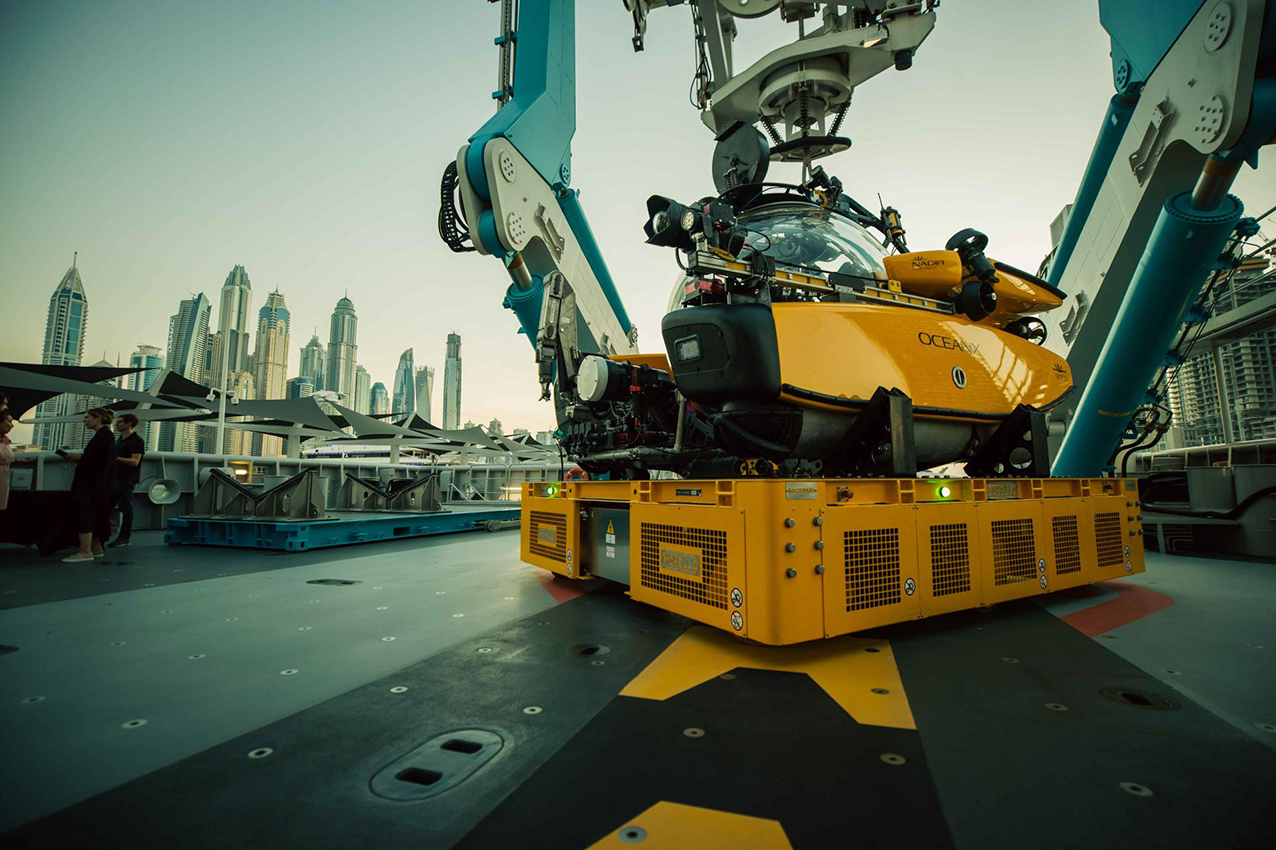

Riyadh, 07 Dec, 2023: Red Sea Global (RSG), the multi-project developer behind the world’s most ambitious regenerative tourism destinations, The Red Sea and Amaala, has announced a ‘Coral Commitment’, vowing to protect and regenerate corals in the Red Sea and beyond.
The multi-layered program was revealed at a side event to COP28 in Dubai onboard the famous “Ocean Xplorer” vessel and was marked with the signing of a letter of intent (LOI) with The Coral Research & Development Accelerator Platform (CORDAP).
At the same time, RSG unveiled the new brand for its marine life institute at Amaala, which it has named Corallium, and announced the results of phase one of its Coral Gardening Pilot Project.
“The Red Sea has some of the most stunning and resilient corals anywhere in the world. They may even hold the secret to global coral health. But unfortunately, not even Red Sea coral is invincible. We need to protect and regenerate this vital ecosystem. Our Coral Commitment is a promise to do just that,” said John Pagano, Group CEO of RSG.
CORDAP was launched in 2020 by the G20 to fast-track research and development solutions to save the world’s corals. The LOI will see RSG work with the body to accelerate and scale up the development of new technologies that support international coral conservation efforts.
Professor Carlos Duarte, Executive Director at CORDAP, said: “The greatest risk to the planet does not rest on the climate and biodiversity crises, but on people giving up on the dream of a healthier, cleaner and safer planet. Many ecosystems and species could still be rebuilt by 2050 if people worked together to repair the damage and stabilize the climate. CORDAP together with RSG is an engine for keeping that dream alive.”
Coral gardening
RSG has already pioneered research in this field with its Coral Gardening Pilot Project. The developer is monitoring some 300 reef sites, rescuing corals through relocation and testing coral farming techniques to restore coral reefs. In 2021, they established several offshore floating nurseries to sustain and grow a small number of rescued corals, achieving a 97% success rate.
Raed Albasseet, Group Chief Environment and Sustainability Officer at RSG, said: “Our collective efforts have yielded valuable insights into the best conditions and techniques for coral enhancement. We’re confident, as we move into the next phase, we can further push up survival rates and expand capacity. This will help us in our immediate goal to actively enhance selected reef areas with low coral cover to preserve the ecological and aesthetic value of coral reefs in our destination areas. After that, we’re setting our sights on coral regeneration globally.”
Next year RSG will take delivery of a million-dollar coral breeding lab, which will allow its team of scientists to produce juvenile coral at multiple points throughout the year. Compared with corals in the wild, which only breed over a few days each year, this could mean an exponential increase in the number of corals grown for reef enhancement.
The developer is already deploying advanced technology, including robots and machine learning, to monitor coral cover. It captures 3D images, which are stitched together into a digital twin. This allows scientists to quickly identify and respond to any potential negative events such as coral bleaching and the arrival of invasive species. Soon, it will begin testing 3-D printed materials to create artificial substrates for transplanting large coral colonies. This will enable RSG to build small, highly functional, high-value reefs to support abundant marine life.
Corallium: Marine Life Institute
At the event hosted onboard the Ocean Xplorer, a vessel owned by OceanX, which is on a mission to explore the ocean, RSG unveiled Corallium, the new name and brand of its marine life institute, which is under construction at the Triple Bay development in Amaala.
The marine life institute will be home to various marine research operations and visitor experiences. Its scientific work will be based upon research, discovery, and regeneration, with dry labs, wet labs, and coral and marine life rehabilitation zones. Each have been designed to encourage participation, immersion, play, surprise, and the opportunity for visitors to change their perspective and commit their own efforts to restoring ocean health.
The facility includes specialized rooms for advanced medical procedures and rehabilitation. Specifically, its team of scientists will support sea turtle, shark, dugong, and cetacean conservation, coral farming and reef rehabilitation, as well as seagrass and mangrove propagation. Importantly, the sea creatures at the institute will be under temporary human care, never captured.
“We envision a world where the sea’s mysteries become a source of endless fascination, where pioneering research thrives, and where entertainment blends imperceptibly with environmental stewardship. Through Corallium, we hope to inspire a lifelong love for our oceans, and ignite a wave of positive change for the planet,” added Mr. Pagano.
Other notable environmental achievements from RSG in 2023 include the opening of a mangrove nursery in August that has already nurtured one million mangrove seedlings. This represents a major step towards the company’s ambition to plant 50 million mangroves, creating new habitats that enable biodiversity to flourish while sequestering carbon from the atmosphere.
The Red Sea recently welcomed its first guests. Two of its hotels are open for bookings and the Red Sea International Airport has been receiving a regular schedule of flights since September. Amaala remains on track to welcome first guests in 2025, when the first resorts complete as part of Triple Bay phase one, along with Corallium and the iconic Yacht Club.























